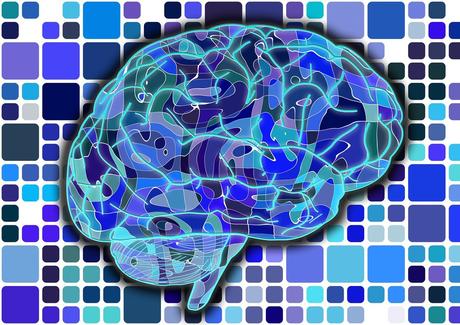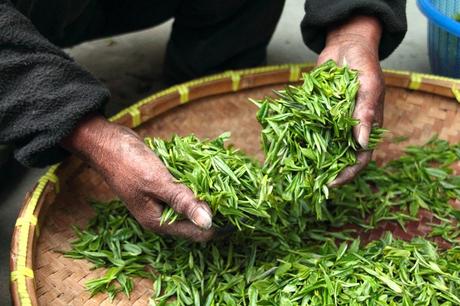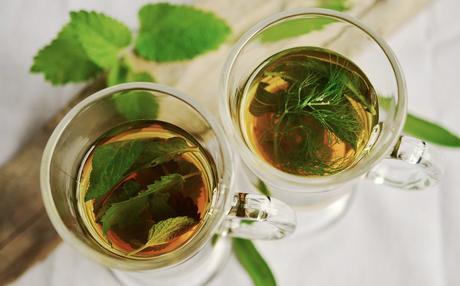
Benefits of green tea
In recent times there’s been a wealth of publicity on the merits of green tea. If you’re looking to improve nutrient intake and boost general health then many experts suggest your look no further than a cup of this powerful brew. Countless health and fitness publications and media outlets have raised the profile of consuming tea, not that most of us need convincing. It is the second most consumed beverage on the planet behind, you guessed it, water.
The benefits of Green tea are substantial, I have to admit. Even if you're somewhat cynical of scientific research, the sheer weight of evidence pointing to green tea influencing a diverse range of health conditions should be enough to sway you. Let’s look at a few of these health benefits.
Green tea may reduce incidence of certain diseases

Will green tea reduce disease risk?
Two of the largest causes of death worldwide are cardiovascular disease and cancer. Scientists have suggested green tea may reduce the likelihood of becoming inflicted by one of these killers.
Consuming this beverage may improve total cholesterol, LDL cholesterol (by stopping LDL particles from oxidation) and triglycerides. These are three of the more significant risk factors for cardiovascular disease. Also, regular consumption has been shown to reduce high blood pressure.
In fact one study determined that women who drank five or more cups of green tea reported a 31% lower risk of dying as a result of cardiovascular disease. That really is a staggering statistic. Although the FDA doesn't necessarily accept these and other related findings. Read more about their view.
The risk of uncontrolled cell growth or cancer may be reduced by powerful antioxidants in green tea. A couple of recent studies seem to suggest this anyway.
The first - a meta analysis of observational studies - promoted a 22% lower risk of breast cancer for those that drank higher volumes. The second study looked at mens biggest cancer killer, cancer of the prostate. This Japanese study revealed that men drinking green tea had almost 50% lower risk of enduring the deadly disease.
Type 2 is the most common form of diabetes, caused by a bodies inability to use insulin properly. Green tea may have favourable influence in this area. Another Japanese study identified green tea improved insulin sensitivity and reduced blood sugar levels. The authors suggested those that drank more of this beverage had a 42% lower risk of contracting type 2 diabetes.
Improved brain function

Green tea and improved brain function
Studies have suggested an association with improved brain function, enhanced productivity and more stable energy levels. That sounds useful!
Is it just because of the caffeine presence in tea? After all caffeine is a known stimulant that blocks Adenosine, an inhibitory neurotransmitter involved in sleep, and increases the concentration of dopamine and norepinephrine. It has also been correlated with improvements in mood, reaction time and memory.
The short answer is no. It’s not just the caffeine, although this obviously helps. L-theanine, a non-dietary amino acid found naturally in tea leaves, stimulates the production of the brains alpha waves, boosts the activity of GABA, another inhibitory neurotransmitter, and has been shown to promote relaxation without sedation.
It is the combination of caffeine and L-theanine that can have a positive impact on brain function.
Further to this enhancement in brain function, green tea may play a protective role in the brain as it ages. One study demonstrated a protective effect on neurons, the researchers concluding a lower risk of Alzheimer’s and Parkinson’s disease.
It will makes you look even more beautiful

Anti Ageing and green tea
Really? Sign me up!
Yes, some believe that green tea can take years off your life, not only minimising wrinkles and visible signs of ageing, but also by reducing damage caused by the harmful sun's rays.
It might even help you maintain a sparkling white smile for a little longer as well. The beverage has been linked to improved dental health via the inhibition of streptococcus mutans, the most harmful bacteria in your mouth. This may reduce cavity formation as well as ensuring your breath smells better. That's always a bonus.
You will live longer
It probably goes without saying that considering all these potential health benefits from green tea you could live longer… but lets see if some of the numbers support that assertion.
One Japanese study that included over 40,000 adults found tea drinkers consuming over 5 cups a day were less likely to die during an 11 year period.
The Japanese must love their tea. Another similar study in Japan investigated 14,000 elderly Japanese adults aged 65+. Those that drank the most tea presented a 76% lower likelihood of death during the 6 year monitoring period. If you fancy extending your longevity… increasing your tea intake could be just the ticket.
The final benefit of green tea i wanted to touch on was in relation to weight loss. A number of advocates have suggested green tea can increase fat burning and reduce obesity risk. Yes, there are some studies to support this. Lets talk about this some more in a moment.
Green tea is not a new phenomenon

History of green tea
First let’s step back a bit. While green tea is getting a upsurge in exposure as a health aide, particularly in western parts, it is by no means a new theory.
The British are perhaps best known for their love of a good cuppa [interestingly they are only third in average tea consumption - behind Turkey and Ireland], but China is by far and away the largest consumer of tea - chugging back a whopping 1.6 billion pounds per year of either the green, black or oolong tea varieties.
Green tea has been cultivated for use as a medicine in China, India and other parts of Asia for thousands of years. Whether looking to improve heart health, regulate body temperature, improve mental function, treat gas, heal wounds or as a diuretic - green tea has been a ‘go to’ medicinal treatment.
More recently the traditional cup of tea (containing 50-150 mg of polyphenols) has been replaced with a plethora of dietary supplements or extracts in capsule, liquid or powder form.
Why does green tea provide such health benefits?

Green tea fermentation
So how does green tea provide such a wonderful health benefit? Scientists believe the processing of green tea is the answer. The fermentation process associated with black or oolong tea is absent when creating green tea. So what?
Apparently this retains the maximum volume of antioxidants and polyphenols (or catechins). Now there are six of these catechin compounds in green tea. You don’t need to know the complicated names of all six of them - but EGCG is the most predominant compound and accordingly the subject of the most green tea related research.
What do antioxidants do?
Good question. Antioxidants reduce the formation of something called free radicals. This has the wonderful effect of protecting cells and molecules from damage caused by said free radicals. It has been claimed that the antioxidants impact of polyphenols even outstrips Vitamin C (or ascorbic acid), a common westerners 'go-to' for the prevention of or recovery from cold or flu.
But how well does it work for weight loss?

Will green tea help me lose weight?
Now while some of benefits of green tea seem to be clear cut, the question of the impact of green tea on weight loss might not be so obvious.
Fitness or weight loss product manufacturers will not like to hear this assertion. An increasing number of products on the shelf state that green tea supports weight loss or accelerates metabolism. Consumers are sometimes led to believe the influence of green tea on weight loss is beyond question.
But if we look at the descriptions on a couple of green tea extract products it appears even the manufacturers are conscious the evidence is somewhat conflicting and the assurance of weight loss is not guaranteed.
The first description states "green tea MAY enhance weight loss when combined with a healthy diet and plenty of exercise." Fair enough. Although if I was following a healthy diet and had time for 'plenty of exercise', chances are I wouldn't need the green tea extract anyway I imagine.
The second description is much the same… green tea “may help boost metabolism, increase calorie burning and support weight loss when combined with a reduced calorie diet and exercise plan." Yes, it sounds far from clear cut if you ask me. Still many experts suggest you should incorporate it into your daily nutrition.
Tod Cooperman, MD and president of the independent testing company ConsumerLab.com, - suggest that any effect see from green tea is “probably due to the caffeine”. He proposes that if a stimulant encourages you to move more... it will clearly result in greater calorie burning.
I think we should look at this in a bit more detail. I have reviewed a range of studies to further investigate the benefits of green tea for weight loss… what I discovered was inconsistent at best.
Baladia et al did a lot of the work for me! Their research team completed a literature review and meta analysis, scouring studies between 2000 and 2013 to evaluate the impact of green tea extract consumption on body weight and composition. Their findings? Unfortunately they uncovered no statistically significant impact on weight of overweight or obese adults. While the researchers did identify a decrease in the percentage of fat mass - they dismissed it as small and not clinically relevant.
I do want to point out a small caveat with this review. While the search strategy employed unearthed 154 studies… only 5 of them met the criteria to include in quantitative analysis.
A further intervention published in the European Journal of Clinical Nutrition in 2007 - examined the effect of green tea on thermogenesis and energy intake. The impact of caffeine and tyrosine was also evaluated during this trial.
The scientists recruited 12 healthy normal weight men in their early 20s. Unfortunately for the proponents of green tea - caffeine was the only supplement that induced a thermogenic response - a 6% increase in metabolism above baseline. The authors did suggest however that the small sample size made it difficult to detect an impact on appetite suppression. At this stage things are not looking too promising for green tea.
The third study we looked focused on EGCG (the compound in green tea we talked about earlier) and analysed whether it initiated any change in fat oxidation or themogensis. This study recruited 6 overweight men and supplemented them with 300 mg of EGCG for 2 days.
While Boschmann and Thielecke failed to demonstrate a significant difference between EGCG and the control in terms of energy expenditure, they did reveal lower respiratory quotient values when compared to the placebo. What does this mean? EGCG may increase fat oxidation.
Again this was just a small study and seemed to have a 'bob each way'. Let's not sing the praises of green tea for weight loss just yet.

Green tea benefits
A 2011 study provided further positive reinforcement. Sedentary males, aged 40-69 were assigned to consume decaffeinated green tea extract twice daily. Despite no effect on blood pressure or biomarkers of metabolic function - this research suggested a protective effect on weight gain. The treatment group decreased weight slightly during the monitoring period… whereas the placebo groups gained weight.
Maybe green tea, rather than helping lose weight, could play a role in stopping us gaining more weight. That would certainly be beneficial if it is true… Lets look at a couple more studies just to be sure.
12 week Study published in Obesity in 2007 - Japanese women and men with visceral fat - 240 subjects found higher dose of catechin (583 mg) per day - associated with Decreases in body weight, body mass index, body fat ratio, body fat mass, waist circumference, hip circumference, visceral fat area, and subcutaneous fat area were found to be greater in the catechin group than in the control group
Researchers suggest higher ingestion catchecinss - can contribute to decrease in obesity and CV disease risk.
One of the more supportive studies weight loss and green tea - 10 healthy men 24 hours in respiratory chamber - analyze metabolic rate and fat ox. Demonstrated a 4 % increase in metabolic rate with green tea extract cf placebo. - increase in EE from between 5 nd 200 calories per day. What does that mean in the scheme of fat loss? 0.7 to 1.5 pounds fat loss over a month.
Yes, nothing staggering - but still an additional pound or so fat not lost otherwise. Also study suggested preferential use fat over carbs.
So - despite trawling through not sure we are any clearer

